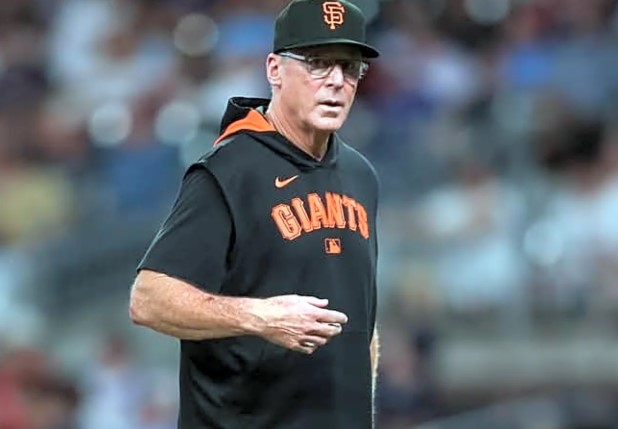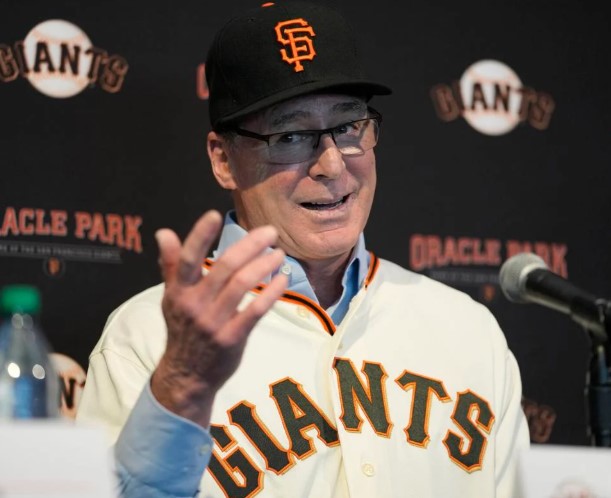[BREAKING NEWS] Bob Melvin’s 1,651st Win Isn’t Just a Milestone—It’s a Statement of Endurance, Evolution, and Quiet Greatness
By [Your Name] | The Athletic-style feature | ~900 words
On a quiet July evening, with little fanfare and even less media buzz, Bob Melvin did what he has done for over two decades—win a baseball game. But this one, his 1,651st career victory, carried more than just another “W” in the standings. It pushed him past Hall of Famer Casey Stengel, landing him at No. 20 all-time in Major League Baseball history for managerial wins.
And just like so many moments in Melvin’s career, it was understated, efficient, and deeply significant—yet almost easy to overlook.
The Silent Climb to Baseball Immortality
Melvin’s journey to this elite echelon isn’t the kind you’ll find romanticized in Hollywood scripts. There were no dynasties, no three-peat rings, no parade floats in his name. His career has been defined by resilience, adaptability, and a constant ability to extract more from less.
From Oakland’s budget-restricted rosters to San Diego’s superstar puzzle, Melvin has quietly become one of the most respected minds in baseball, even if he has never been its loudest.
“People forget how long he’s been doing this—and how good he’s been at it,” said former A’s pitcher Sean Manaea. “Bob doesn’t need the spotlight. The guys in the clubhouse know who he is.”
Consistency in Chaos
What sets Melvin apart is his consistency in a game that often eats its own. Consider this: since his managerial debut in 2003 with the Seattle Mariners, 17 of the 30 current MLB teams have changed managers at least five times. Melvin, meanwhile, has held three long-term tenures—Seattle, Arizona, Oakland—before arriving in San Diego, then San Francisco.
Across those stops, his teams have made multiple postseason appearances, often defying preseason expectations and outperforming more expensive or “sexier” rosters.
While some managers are strategists and others motivators, Melvin has always been a rare hybrid: calm under pressure, analytical in decision-making, and quietly demanding in culture.
“He doesn’t scream. He doesn’t throw things. But you damn well know what he expects of you,” said former A’s catcher Stephen Vogt. “And that’s why players play hard for him.”
Why 1,651 Matters More Than It Seems
It’s easy to throw numbers around in baseball. The game thrives on statistics, and “managerial wins” can feel abstract to the casual fan. After all, what does a manager really control?
But here’s the thing: reaching 1,651 wins in the modern era isn’t just rare—it’s nearly impossible. The days of managers staying with one team for 15 years are gone. Patience from front offices is thinner. Player rosters turn over yearly. Clubhouses are younger, more diverse, and increasingly analytics-driven.
In that context, Melvin’s milestone becomes more than a number—it’s a tribute to his evolution as a leader.
“He’s a modern manager with old-school integrity,” one rival GM told ESPN. “And that’s incredibly hard to find now.”
A Legacy Without the Rings?
There’s a fair question that follows any celebration of Melvin’s legacy: Where are the championships? Unlike many of his fellow 1,600+ club members—Tony La Russa, Joe Torre, Bobby Cox—Melvin has never won a World Series as a manager.
But should that matter?
Melvin has managed in some of the league’s most resource-strapped or pressure-cooked markets. He never had the payroll of the Dodgers or the Yankees, yet routinely made those teams sweat in September. His 2012 Oakland team, for instance, won the AL West despite having one of the lowest payrolls in baseball.
And in today’s MLB—where front offices dictate bullpen usage, player minutes, and even lineups—it’s harder than ever for managers to stand out by wins alone.
“Bob Melvin winning 1,651 games is like someone running a marathon uphill, backward, in the rain,” joked one veteran scout.
What’s Next for Melvin?
Now managing the San Francisco Giants, Melvin isn’t treating the milestone as a farewell tour. If anything, he’s locked in.

“This isn’t about me,” he said after the win. “It’s about doing the work, day in and day out. Same as it ever was.”
But make no mistake: Baseball will eventually take notice. The Hall of Fame discussions have already begun, and this milestone—1,651 and counting—makes that conversation unavoidable.
For a game that often forgets its quiet heroes, Melvin’s career stands as a testament to the long game. He may not make headlines with ejections or viral interviews. He may not have the rings.
But he has the respect of players, peers, and now, a permanent place in baseball’s managerial elite.
And if that doesn’t deserve a banner, it certainly deserves a pause—and maybe even a standing ovation.
